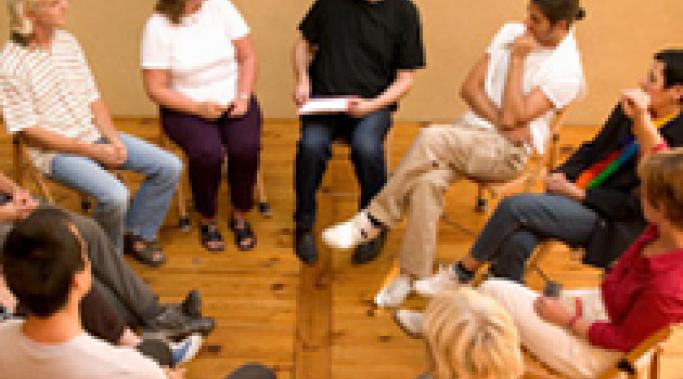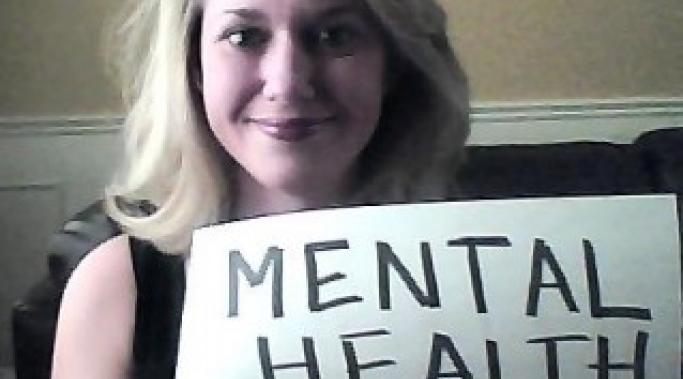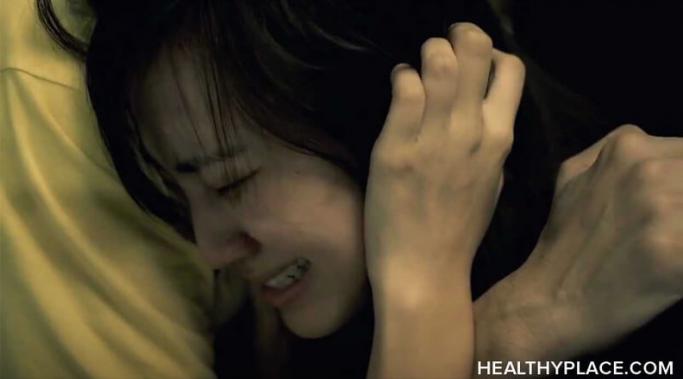Blogs
I have had years of therapy in my life to deal with bipolar disorder (and other assorted issues). I would say, at least 15. It makes my head spin thinking of all the therapists I have talked to in my time.
But I admit, I’m not in therapy now. I know, as a role model I probably should stand up and say that everyone needs therapy all of the time but I don’t think that. I think that you can outgrow therapy for bipolar disorder.
My brother recently posted a picture of a T-shirt that read "It's an Oberg thing. You wouldn't understand." This struck me as funny because our last name is not exactly common. It got better when I started reading the comments--all these other people with the last name Oberg who thought they were the only ones was intriguing enough, but my favorite comment was, "Has anyone else spent their life going 'No, it's not Irish, there's no apostrophe?" I loved the whole thread.
It taught me an important lesson about group therapy--namely, it can be just as effective as individual therapy.
If you’ve read my blog for a while, you’ll remember that my eating disorder recovery started a little over 6 years ago when I found myself in the hospital, facing the physical consequences of binging and purging since I suffered from bulimia for most of my life as a young adult.
What I haven't focused on in previous posts, was that at the time I decided to get better, I didn’t have the resources to see a therapist, nor was our public health system available to help as I would have liked. So, not unlike many others facing an illness with a lack of adequate resources or treatment options, I did what I could on my own at first to pick myself up from rock bottom.
It’s hard, especially for teenage girls, to stop for a moment and not care about what others may think and say about them. Girls can be cruel and those who are the cruelest and have difficulties accepting who they are feel the need to take it out on others. For teenagers struggling with self-harm, a dirty look or quiet snicker can lead to leaving class, going to the bathroom and cutting until class ends.
I know this because that’s exactly how I dealt with those issues during my teens.
It took years to finally get to a place where I could look in the mirror and feel okay about the person starting back at me. I still struggle with my confidence, and most people do, but compared to the struggles of my past – I have proudly come so far. However, sometimes we need something to remind us of our strength and our beauty and music can be the source of strength needed.
Hello, my name is Christina Halli. I am excited to join HealthyPlace writing Life with Bob. I can tell you parenting a child with mental illness is tough, one of the hardest things I have done.
Adult ADHD, School and the ADA
First off, let me say that I am not an expert on the Americans with Disabilities Act (ADA). I only know how my own story and how my adult attention-deficit/hyperactivity disorder (ADHD) has interacted with the ADA in the workplace and during my time in higher education. I could, of course, make this disclaimer before each of my adult ADHD blog articles, but feel it's extra important for this one as it involves sensitive, intricate and detailed legal workings. I am no lawyer and never will be. After these three years of physical therapy school are done, I plan on being done as well!
Most people want to be happy, but just don't know how. Many of us make things harder than they need to be. It's a habit that has likely become the norm for you, too. Maybe you've taken on too much at work yet again, found yourself in another unbalanced relationship, or have become stuck in a cycle of negative thinking. All of these can sabotage your happiness and make you feel insecure. There is a part of you that wants to be happy (otherwise you wouldn't be reading this) and I'm going to share some happiness tips to help you achieve that.
Happiness resides not in possessions, and not in gold, happiness dwells in the soul~Democritus
The Soul, Revealed
On the backdrop of the scenic Lake Louise, I want to share a reflection about the "soul."
What is the "soul?"
This question is not about religion. It is about discovering the depths of who you are beyond what you can physically see. This is an age old question that still mystifies us today. Greek philosopher, Aristotle defined it as the psyche and Plato believed it was how we controlled our behavior. Contemporary thinkers offer variations of the same which tend to return to the essence of a person. For example:
Hallucinations are a prominent feature in many people who suffer from paranoid schizophrenia. Many of us will experience visual, tactile and auditory hallucinations during some period of our illness. The most common of these, and the only I have experienced, are auditory hallucinations. Hearing voices is extremely common for people with paranoid schizophrenia, and can be a terrifying and degrading experience for the sufferer.
There is no easy way to discuss past self-harm. No matter how you go about bringing forward difficult struggles from your past, it is almost always going to be an uncomfortable situation. Even for the most confident person, there is always something that gets in the way of that confidence and, for some, it can be discussing a mental health issue, like self-injury, they must deal with.









